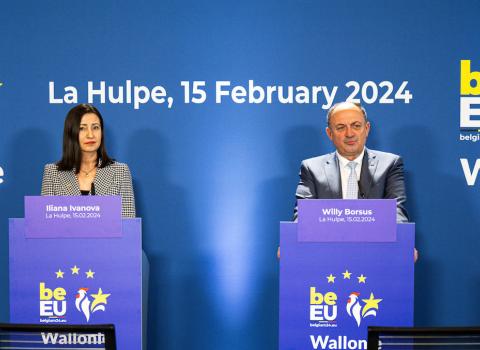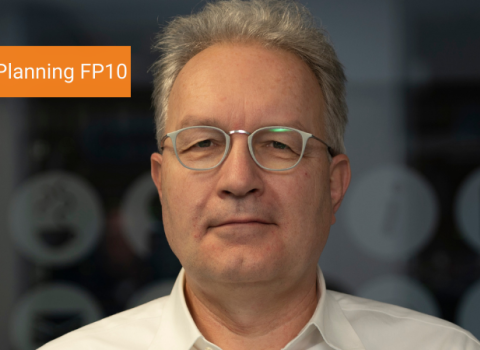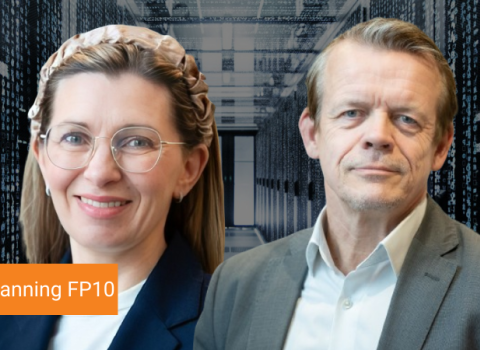Leading academics defend EU research missions and say productivity growth should not be the direct goal of European investment in research and innovation

In December 2023 Robert D. Atkinson made the case for orienting the next EU research programme, Framework Programme 10 (FP10) towards potential economic gains, saying the EU “needs to get back to economic basics”, it should back away from “misguided missions and bottom-up funding” and “should be crafting a different kind of programme […] focused instead on supporting technological innovation and international competitiveness.”
Such an approach would put industry in the driving seat, largely determining the priorities of research, which would be funded by the EU only when there is a demand and co-financing from the private sector.
In this response, we would argue that - while Atkinson certainly is right in pointing to the need to foster European technological competitiveness, to put a stronger policy emphasis on productivity-enhancing policies and to focus on key future enabling technologies such as artificial intelligence – his view is too one-sided and would not be a good overall guide for shaping FP10.
Let’s start with the Missions, where we feel Atkinson is not reflecting on the current state of development of the concept, let alone the breadth of the EU approach on research and innovation. He references the research carried out by the European Commission’s special adviser Mariana Mazzucato in setting out the missions’ prospectus and their characterisation as ‘moonshot’ programmes.
However, the current missions being pursued in Horizon Europe are of a different type. Mostly, they are, or aim to be ‘transformative missions’, that seek to bring about systemic change in socio-technical systems.
As such, they are long-term efforts with limited short term pay-back, and which need societal and governance transformations for their successful implementation. But in the long run, they could lead to new ways of governance (suited to 21st century challenges) and their economic benefits in terms of sustainability and resilience are likely to be very substantial.
As the famous American economist Richard Nelson put it in the 1970s, “If we can land a man on the moon, why can't we solve the problems of the ghetto?” Societal challenges may be more daunting than technological missions, but if not addressed they may well threaten our societies at a far more fundamental level than sluggish economic competitiveness would.
In our view, Atkinson is wrong to present productivity growth as “the sine qua non of all the other goals”, particularly so in these times of interruptions in global trade, political and military conflicts, and growing concerns about the environmental and climatic boundaries of the planet.
Mobilising capabilities
Another of Atkinson’s criticisms is ‘that the EU chose the wrong [missions]’ as they would ‘reflect social policy goals, not growth and competitiveness policy goals’. We say that while one might argue about the way the current EU missions were chosen and on what evidence base, this is a procedural argument rather than a substantive one: it cannot be used to disqualify the mission-oriented approach in general.
Our critique would rather be that given the limited capabilities of policy administration, the Commission – as with any policy body taking up the mission approach – should put more effort into mobilising the capabilities of broad stakeholder groups in the design and implementation of missions.
Further, at least some of the chosen topics – while all laudable policy goals – lack the ‘urgency’ (and the accompanying high level policy support) that has been a necessary pre-condition of successful mission policies in the past, from the moonshot in response to the launch of the Soviet Union’s Sputnik satellite in the Cold War, to the Dutch Delta national flood protection plan, to COVID-19 vaccine development during the pandemic and the Manhattan project in world war II, to mention just some historical examples of technology-centric missions.
In addition, we should take into account that public intervention in research and innovation is justified where markets fail to deliver long-term social and economic benefits (market failures, for example in funding basic research); when cooperation and knowledge exchange is insufficient (for example, knowledge exchange between science, industry and civil society in relation to emerging technologies); or when path-dependencies and lock-ins prevent a shift towards socially benign trajectories (for example, in relation to climate change and sustainable development goals, but also when technological, economic, political and military sovereignty are threatened).
Of course, industrial innovation and competitiveness have an important role to play in delivering innovation, but relying solely on their short-term and partial interests rather than on long-term collective interests is unlikely to lead to the Europe we want. Defending Europe’s industrial interests is not only a matter of research and innovation, but should also be the principal concern of European industrial and single market policies.
To call for strengthening Europe’s competitiveness and resilience in relation to other parts of the (research) world is certainly important in several key industries, but we should not throw out the baby with the bathwater. In particular, in areas of shared global concern – and this may not only include climate change but also defining global rules and standards for the advancement and use of artificial intelligence – collaboration is needed as much as the strengthening of Europe’s capabilities and influence.
A win-win
All in all, a more differentiated take on FP10 is needed. It calls for an approach that provides sufficient resources to strengthen industrial competitiveness, but without neglecting either global and societal challenges, nor the resilience and creativity emanating from basic research.
Striking a balance will be a win-win for the economy and societies. Missions address problems that are either global by nature, or which occur around the globe. In doing so, they also create and boost markets and they have the potential to orientate R&D in the direction of future demand. From this perspective, missions should also be complemented by demand side measures.
Missions can be part of future-oriented lead market policies that incentivise companies to step up their productivity game through directed R&D for the benefit of our societies and the planet.
In short, Framework Programmes have had - and should continue to have - a much broader focus than just industrial innovation and productivity. Atkinson’s advice that ‘both the UN Sustainable Development Goals and the EU Horizon Missions should be abandoned and replaced with a single-minded focus on productivity growth […] and competitiveness with China’, should not be followed in our view.
This would be a major step backwards: it is right that FP10 addresses grand societal challenges - among other targets - and is one important (though by no means the sole and sometimes not even the most important) tool to support ‘collective European action’ towards this. While certainly the outcomes of framework programmes in terms of technological and industrial innovation could be enhanced, it would be a misconception of what EU research is about to see it as the sole, or even the main source for doing so.
Whatever the part played by the FP10, the real problem with European industrial competitiveness is that the industrial policy of the EU is still a patchwork – as is the European single market. In addition, it lacks instruments on the level of the EU that the US has used in passing the Inflation Reduction Act and the Chips Act. However, we do see much potential in better linking of FP10 with the (few) available industrial policy instruments, for example, Important Projects of Common European Interest).
While we have many points of disagreement with Atkinson, we do acknowledge that his contribution should be taken up as part of a debate about the role of industrial innovation, industrial policy and the missions – with a view to better integrating them in FP10.
Jakob Edler is the executive director of the Fraunhofer Institute for Systems and Innovation Research. Mireille Matt is the research director of France's National Research Institute for Agriculture, Food and Environment. Wolfgang Polt is the director for policy at Joanneum Research. Matthias Weber is the head of the Centre for Innovation Systems and Policy, Austrian Institute of Technology.





 A unique international forum for public research organisations and companies to connect their external engagement with strategic interests around their R&D system.
A unique international forum for public research organisations and companies to connect their external engagement with strategic interests around their R&D system.